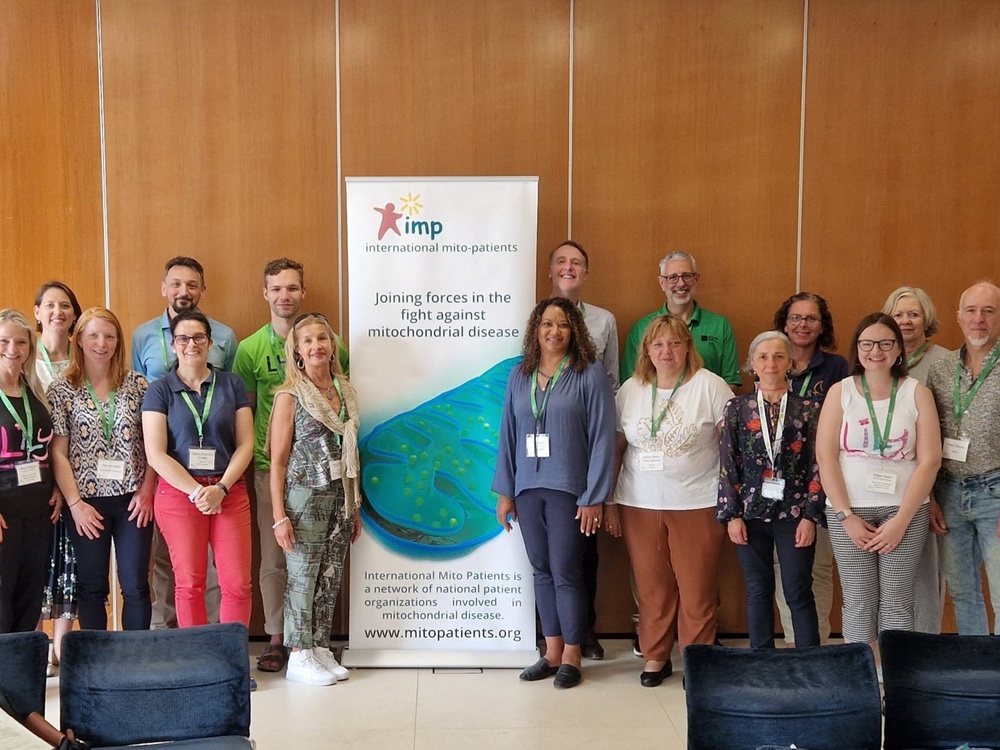A partnership in… raising awareness
15 years ago, we thought mitochondrial disease was really rare. Turns out it wasn’t that rare after all, but we just didn’t know enough about it. Today there’s more education and training in the area of mitochondrial disease than ever before, and there are several specialist centres in the UK who are as proactive in raising awareness about mitochondrial disorders as we are, helping to put this inherited disorder in the spotlight.
But it doesn’t end there, as we’re at the forefront of spreading the word further afield too. As a member of the International Mito Patients group, the global umbrella organisation that unites mitochondrial disease patient organisations around the world, we’re raising awareness on an international scale. Being part of this group means we can link with a large number of clinicians and academics within the mito community, hugely important when it comes to supporting those all-important patient organisations, and we’re able to team up with, for example, charities in other countries just starting out on their journey, guiding them and sharing our knowledge and expertise.
A partnership in… seeking treatments and a cure
Only through research will we get closer to understanding mitochondrial disease and how to treat and ultimately cure it. Having detailed information on real-life mitochondrial disease patients allows doctors to study how the disease progresses over time and helps identify eligible patients to take part in future research studies or drug trials.
We bring together different researchers where we see opportunities to advance ongoing projects, and maintain great relationships with many pharmaceutical companies, bringing valuable patient insights into their study designs and helping to spread the word about their clinical trials amongst the patient community. And we also raise our own money to fund selected mitochondrial research projects and fellowships, and support young scientists, providing an area of funding that’s different from traditional channels. All of which, of course, helps accelerate research progress.
Those partnerships extend to all of the specialist centres who are treating mitochondrial disease patients too. As well as the three NHS Highly Specialised Services for Rare Mitochondrial Disorders based in London, Newcastle and Oxford, we also collaborate with many other centres around the UK who don’t have the NHS specialist funding but who still have some real mitochondrial disease experts in their teams – institutions like the University of Cambridge, Evelina Children’s Hospital and Great Ormond Street Hospital. And when a diagnosis of mitochondrial disease is likely or confirmed, doctors at these centres recommend The Lily Foundation to patients and their families as their first port of call.
A partnership in… patient support
As the UK's leading mitochondrial disease charity, we’re there for those patients and their families from the first moment the medical professionals recommend us, providing emotional support, financial help, specialist advice, links with patient groups and other vital services.
There are the annual Patient Information Days held at the three specialist mitochondrial centres, which are co-funded by The Lily Foundation and organised by the NHS, occasions which are critical to ensuring families have access to up-to-date information to help them understand and manage their condition.
And from a social perspective we have an exceptional relationship with many mitochondrial specialists, who give their time and expertise on a voluntary basis to support the work we do. Members of the medical community volunteer their time to attend our Lily Family Support Weekend and Young Adult Weekend each year, where they can support, advise and socialise with mitochondrial disease patients and their families in a relaxed setting, and we also work closely with other charities such as Child Bereavement UK to offer patient care and support.
The future’s bright
Three individual groups – patient organisations, academia and the medical world – have come together to form a real mito community, thanks in part to the bridges we’ve built. It might sound a bit like a political party slogan, but by working together we’ve become stronger together! Mitochondrial disease isn’t as rare as we once thought, and its connection with other diseases such as Alzheimer’s and Parkinson’s mean it’s gaining more and more recognition and interest on the medical map.
We’d like to thank all of our partners for their support and collaboration in helping us to improve the lives of patients and their families, raise awareness of mitochondrial diseases and work towards our ultimate goal, funding new treatments and discovering that all-important cure. Here’s to the next 15 years!

